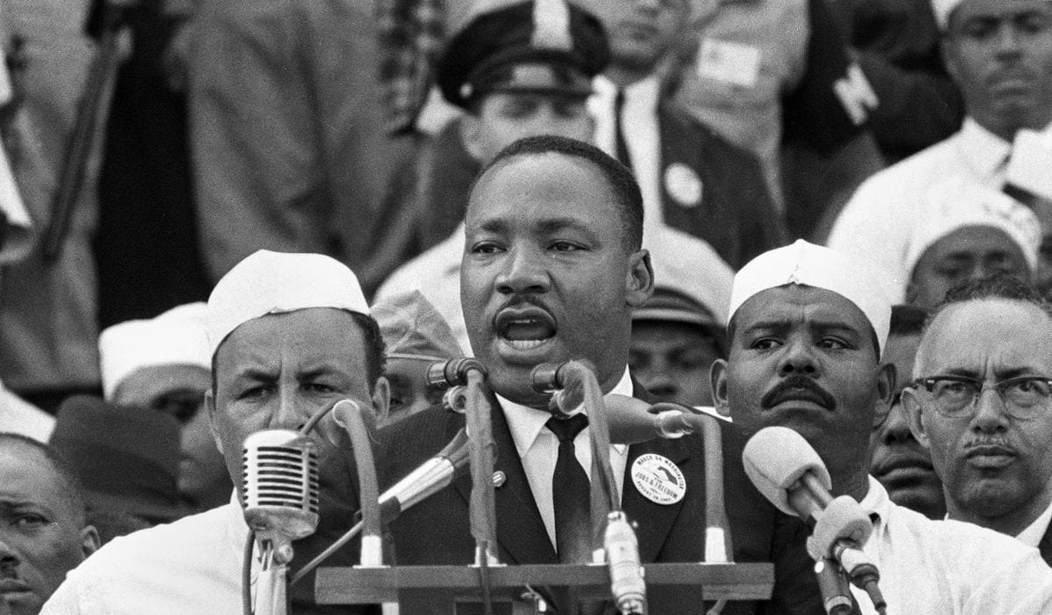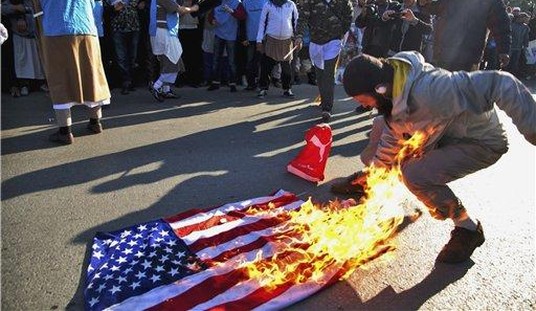Today is the 53rd anniversary of Martin Luther King’s “I have a dream” speech given in front of 250,000 people at the Lincoln Memorial in Washington, D.C.
Theodore H. White thought that a great speech had three basic elements: 1.) The moment. The exact time in history where the speaker’s words will resonate. 2.) The backdrop. The place the speech is delivered amplifies its meaning. And 3.) The words. All great speeches are as inspiring when read as they are when delivered orally.
The occasion for King’s masterpiece was the March on Washington — a primal political thrust by the civil rights movement to spur passage of voting rights and other civil rights legislation, which was bottled up in Congress by southern Democrats.
As the New York Times describes it on the 50th anniversary of the speech, King was at his absolute best that day in giving his prepared remarks as well as the inspired, off-the-cuff “I have a dream” mantra that haunts us to this day:
He began slowly, with magisterial gravity, talking about what it was to be black in America in 1963 and the “shameful condition” of race relations a hundred years after the Emancipation Proclamation. Unlike many of the day’s previous speakers, he did not talk about particular bills before Congress or the marchers’ demands. Instead, he situated the civil rights movement within the broader landscape of history — time past, present and future — and within the timeless vistas of Scripture.
Dr. King was about halfway through his prepared speech when Mahalia Jackson — who earlier that day had delivered a stirring rendition of the spiritual “I Been ’Buked and I Been Scorned” — shouted out to him from the speakers’ stand: “Tell ’em about the ‘Dream,’ Martin, tell ’em about the ‘Dream’!” She was referring to a riff he had delivered on earlier occasions, and Dr. King pushed the text of his remarks to the side and began an extraordinary improvisation on the dream theme that would become one of the most recognizable refrains in the world.
With his improvised riff, Dr. King took a leap into history, jumping from prose to poetry, from the podium to the pulpit. His voice arced into an emotional crescendo as he turned from a sobering assessment of current social injustices to a radiant vision of hope — of what America could be. “I have a dream,” he declared, “my four little children will one day live in a nation where they will not be judged by the color of their skin but by the content of their character. I have a dream today!”
Many in the crowd that afternoon, 50 years ago on Wednesday, had taken buses and trains from around the country. Many wore hats and their Sunday best — “People then,” the civil rights leader John Lewis would recall, “when they went out for a protest, they dressed up” — and the Red Cross was passing out ice cubes to help alleviate the sweltering August heat. But if people were tired after a long day, they were absolutely electrified by Dr. King. There was reverent silence when he began speaking, and when he started to talk about his dream, they called out, “Amen,” and, “Preach, Dr. King, preach,” offering, in the words of his adviser Clarence B. Jones, “every version of the encouragements you would hear in a Baptist church multiplied by tens of thousands.”
https://www.youtube.com/watch?v=H0yP4aLyq1g
The speech is ranked consistently as one of the top 5 best political speeches of all time. And while it took the death of John F. Kennedy and the subsequent appeal to his memory by President Johnson to get the legislation passed, “I have a dream” became a measuring stick for progress on civil rights.
Times have changed. The civil rights “movement” is now little better than any other special interest group prowling the halls of Congress. A “color blind” society has been replaced with misguided affirmative action policies. And despite the fact — or perhaps because — we have now had 8 years of the first black president, race relations hasn’t been this bad since the 1970s.
There’s enough blame for this to go around, so have at it in the comments. But King had the ability to hold a mirror up to white America so that they were forced to confront their shame. In many respects, he was almost like a biblical prophet. And his words, with their spectacular imagery and inspirational message, poured over the listeners like a cool, refreshing rain. In this respect, the impact of the speech on white America was far more important than how it was received by blacks.










Join the conversation as a VIP Member